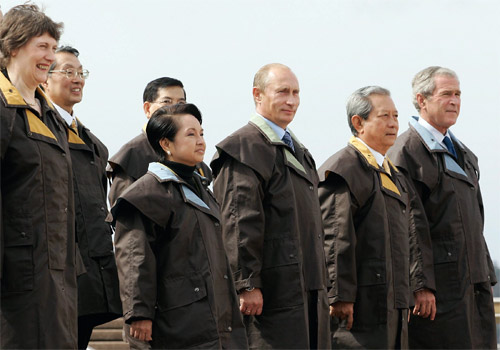This year’s APEC has brought news of so many deals, you could be forgiven for thinking the delegates tackled every big international issue under the sun … but of course, being jack of all trades usually means being master of none. And so it is that despite the rhetoric, the big-ticket announcement of the Sydney Declaration delivers no more than a bunch of hand-waving statements that are barely worth anything in seriously combating climate change.
The thing is, the Sydney Declaration actually is a decent achievement by APEC standards, which is why it overshadowed much more productive news like the deal between Australia and Indonesia to reduce wasteful burning of peat in Borneo.
The issue on which I was expecting to hear some argument was whether APEC should admit more countries, with the moratorium on new members expiring this year. Alternatively, this year would have been a great opportunity to focus APEC a bit by restricting membership with a strict definition like “must have a Pacific coastline”. Instead, the matter seems to have been swept under the carpet, with the only word in the Leaders’ Statement being a new moratorium that’ll run to 2010.
Meanwhile, the first of the long-touted trilateral dialogues between Australia, Japan, and the US was reportedly dominated by discussion of India, Michelle Bachelet of Chile gave an interesting speech, George Bush took a tiny positive step in handling North Korea, business groups adopted an anti-corruption pledge, and more good work was done in tackling the red tape that can stifle international trade.
But there’s been little motion on the bigger and more important question: how will APEC evolve in future? The hope from the early 90s of an enormous free-trade area seems moribund now, and if it is instead to continue the (probably more important) work of lessening regulatory barriers, why are delegates being distracted with things like weak climate change proclamations?




 Atom feed
Atom feed

